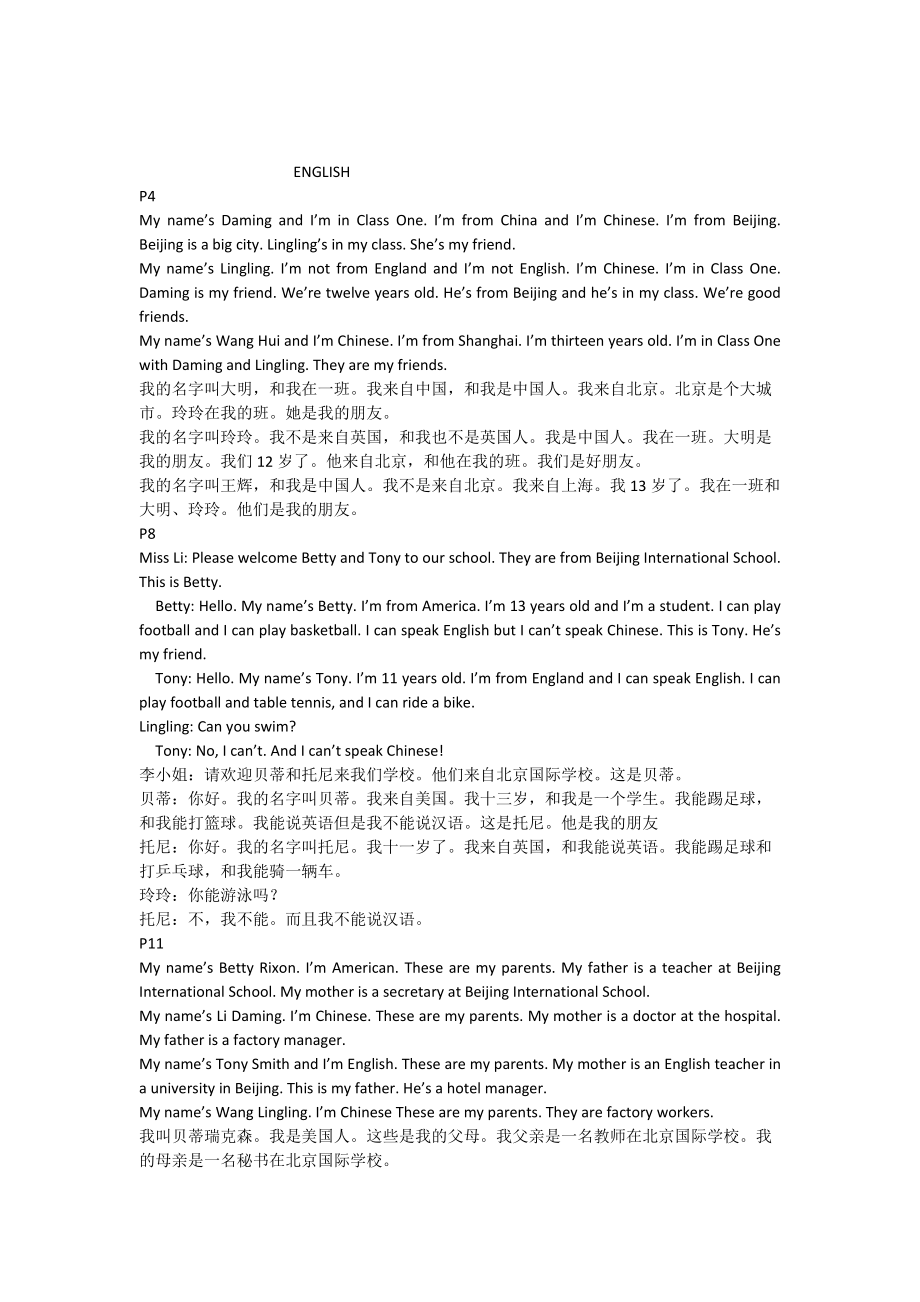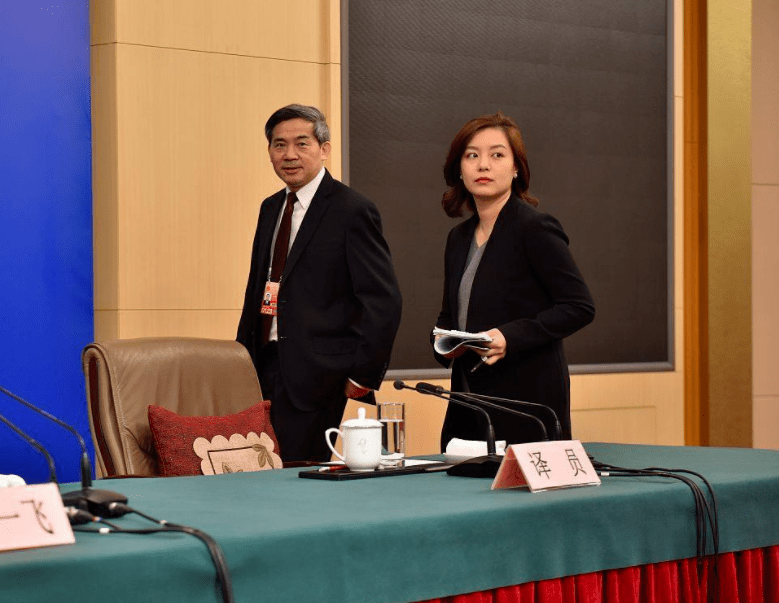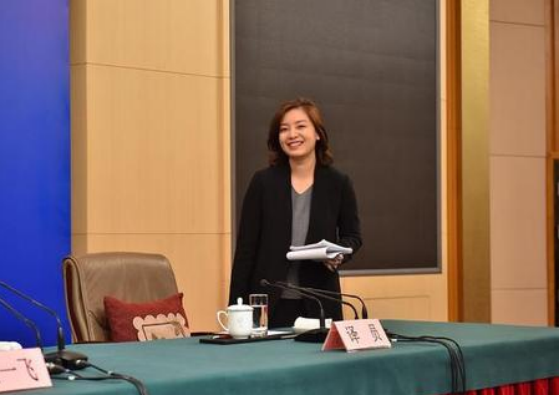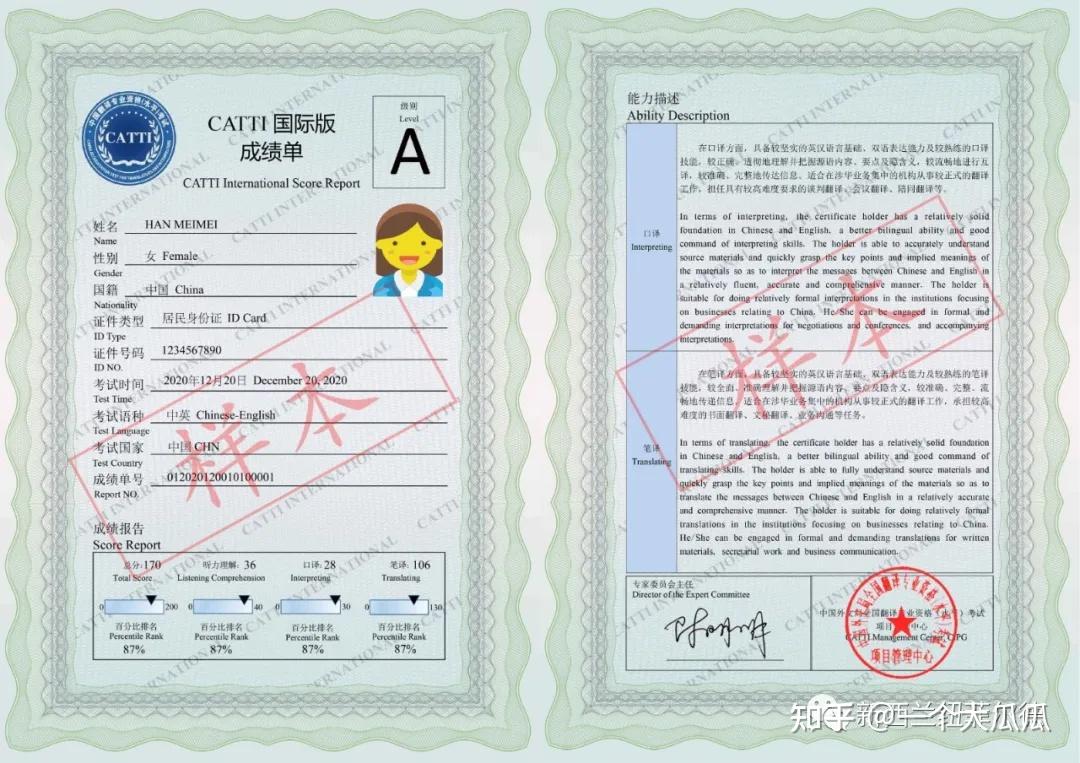On November 2, the press conference of the 9th Fu Lei Translation and Publishing Award was held at the French Cultural Center in Beijing. The jury announced the 10 shortlisted works this year. For the first time, a translator born in the 1990s appeared among the translators. The final award will be announced at an awards ceremony held at Fangsuo Bookstore in Guangzhou on November 25. The translators and publishers of the winning books in the literature and social science categories will share a prize of 4,000 euros, and the winner of the Newcomer Award will receive 1,500 euros.
The Fu Lei Translation and Publishing Award is a testimony of Sino-French friendship and a bridge between Chinese and French cultures. Since its establishment, the Fu Lei Translation and Publishing Award has been a pioneer and has influenced the award composition of many important literary awards.
Gao Renyi, Deputy Counselor for Cultural and Educational Cooperation of the French Embassy, delivered a speech
Dong Qiang, chairman of the Fu Lei Translation and Publishing Award Organizing Committee, presided over the press conference: He said that the biggest feature of this Fu Lei Award is diversity and youth. Among the 59 candidates participating in the selection, there are more than 30 born in the 1980s, and 3 The name "post-90s" shows that the younger generations in the translation industry are becoming more and more powerful and their influence is getting farther and farther.
At the press conference, Mr. Dong Qiang announced that the 9th Fu Lei Translation and Publishing Award Ceremony will be held on November 25 at Guangzhou Fangsuo Bookstore. He said that translation is a national undertaking and should not be limited to a certain city or cultural circle, but should go to the whole country. This is also the second time that the Fu Lei Award has been held in a city outside Beijing after the Fu Lei Award was held in Shanghai in 2015.
Mr. Mao Jihong, founder of Fangsuo, delivered a speech
Mao Jihong, founder of Fangsuo, the co-organizer of this year’s Fu Lei Award, said: This year, Fangsuo is deeply honored that the Fu Lei Award can finally enter the cultural space of Guangzhou Fangsuo and bring participation opportunities to the Cantonese-speaking audience. He also shared his personal emotional connection with Fu Lei: out of admiration for Mr. Fu Lei, he once copied Fu Lei's works in small regular script, and co-organizing the Fu Lei Award was also out of Fang Suo's active sense of responsibility.
Mr. Mao Jihong told "Voice of Diplomacy": Fang Institute is looking for a suitable space in Beijing and strives to land in Beijing as soon as possible to provide a better stage and platform for book lovers, cultural and artistic people in Beijing.
During the media Q&A session, "Voice of Diplomacy" asked Mr. Dong Qiang and Mr. Du Jieyong respectively.
Reporter: Mr. Dong Qiang, due to the death of Ms. Lin Yaling, the chairman of the previous jury, the jury decided to have one vacancy on the current jury in order to pay tribute to her. So, will the selection process and number of votes change?
Dong Qiang: In order to commemorate Ms. Lin Yaling, we will hold a special tribute event for her during this year's awards ceremony. We unanimously decided to leave one judge vacant, but this will not affect the fairness and authority of this competition.
As we all know, the Fu Lei Award judges generally consist of 8 permanent judges and 4 special invited judges who only participate in the final evaluation. Among these 8 judges, even if Ms. Lin Yaling passes away, we still have 4 authoritative judges and 2 from the previous Fu Lei Awards. Award winner (vacant in the social science category), if one person is missing, it will not have a big impact on the selection. Moreover, we must be more serious about the selection, redouble our work, check for her, and pay tribute to Ms. Lin Yaling. The judges’ professional standards are very guaranteed.
"Voice of Diplomacy": Last year, the jury made a difficult decision and there were no vacancies in the social science category. So, is it easy to make the preliminary evaluation of the ten shortlisted works this time? What are the characteristics of this year’s shortlisted works?
Dong Qiang: Last year, because we insisted on following the selection criteria and procedures, the social science category ended up being vacant. The process of shortlisting these ten works this year was not difficult, because according to the standards, each judge will make a statement. The really difficult thing is the final award selection. These shortlisted works are excellent, with more diverse original authors and very young translators born in the 1990s. The final award selection requires a majority, and it will definitely be a difficult and fierce choice. The jury will ensure that the selection is fair and professional, so please look forward to it.
Du Jieyong, Director of the Beijing Center of the French Institute of Far Eastern Studies
Reporter: Mr. Du Jieyong, have you ever encountered works translated from Chinese into French in France? Are there any works that moved you that you can share?
Du Jieyong: Publishing houses play a very important role in helping French people understand Chinese works. Some publishing houses specialize in the translation of Asian or Chinese culture, or some large publishing houses publish a special series. Another relatively rare thing is that French sinologists are now engaged in translation work. They began to translate Chinese traditional cultural works four or five years ago.
Dong Qiang: To add, the death of Ms. Lin Yaling is a huge loss to the French translation of Chinese works.
After the press conference, "Voice of Diplomacy" conducted an exclusive interview with Mr. Gao Renyi, Deputy Counselor for Cultural and Educational Cooperation of the French Embassy in China and Deputy Director of the French Cultural Center.
Reporter: China's Fu Lei Prize encourages translation work from French to Chinese. Is there a similar award in France to encourage the translation of Chinese works into French? Does the French government provide special funding for translation?
Gao Renyi: There are many publishing companies in France that have translated many excellent foreign works, such as Stock, Pique (sound), etc. They have translated some well-known works represented by Yu Hua. In addition, the French government has issued decrees since the 1960s and 1970s to support the development of French culture and art. French publishing companies have received government aid and support.
Reporter: What do you think of the 10 works shortlisted for this Fu Lei Award?
Gao Renyi: These ten works are all very excellent works. As Mr. Dong Qiang said, the preliminary selection is to select 10 works from 59 works. This is very easy because they are all very excellent works. However, The final selection requires very careful thinking.
Reporter: What is your evaluation of these ten French works? What impact do you think they had on French society?
Gao Renyi: These ten French works are all from very famous scholars or writers. The quality and value conveyed by their works have a profound impact on French society, especially my generation. For example, Foucault's "The Society of Punishment" mainly talks about the organizational form of power and its impact on society. Through these works, we French can better understand other cultures and the world as a whole.
The three winners of the 2017 Fu Lei Translation and Publishing Award (respectively for literature, social science, and newcomer awards) will be announced at the awards ceremony on November 25. The translators and publishers of the winning books in literature and social sciences will share a bonus of 4,000 euros (approximately RMB 30,800), while the winner of the "Newcomer Award" will receive a bonus of 1,500 euros (approximately RMB 11,600).
Translation and French literature will be the theme of Guangzhou Fangsuo Bookstore during the weekend of November 25th and 26th. A meeting and book signing event will be held for the shortlisted translators and editors with readers on Sunday morning, and two literary lectures will be held on Sunday afternoon.
Fu Lei Translation and Publishing Award
In the context of the era when New China was just founded, one of the earliest influences that China received from Western ideas was French literature and thought. Great names such as Voltaire, Rousseau, Montesquieu, Hugo, Balzac, etc. brought spiritual food to Chinese readers at that time. After the reform and opening up in the late 1970s, more works by French writers were published in China.
With the cooperation and support of Chinese French scholars represented by Professor Dong Qiang and French sinologists in Beijing, the French Embassy in China established the Fu Lei Translation and Publishing Award in 2009, aiming to promote the translation and dissemination of French literature in China. Mr. Furet (1908-1966) translated the works of Balzac, Voltaire and Romain Rolland. The award is named in honor of this great translator. Every year, the Fu Lei Translation and Publishing Award selects the two best Chinese translations from French, including one in literature and one in social sciences. Since 2013, a "Newcomer Award" has also been established to encourage a new generation of young translators. .
Introduction to the Jury Committee of the Fu Lei Translation and Publishing Award
Duan Mumei (Chairman of the Jury of the 2017 Fu Lei Translation and Publishing Award)
Researcher of French history and Swiss history at the Institute of World History, Chinese Academy of Social Sciences. Honorary president of the French History Research Association in China. In 2011, he was awarded the National Meritorious Officer Medal of the French Republic.
Dong Qiang (Chairman of Fu Lei Translation and Publishing Award Organizing Committee)
Wang Kun
He holds a master's degree in sociology from Sciences Po in Paris and is deputy director of the French Department of Beijing Foreign Studies University. He has translated many social science works.
Yu Zhongxian
Former editor-in-chief of "World Literature", literary translator, professor and doctoral supervisor at the Chinese Academy of Social Sciences and Xiamen University. In 2002, he was awarded the Chevalier des Lettres et des Arts of the French Republic.
Du Jieyong
Ph.D. in Chinese Culture and Language, associate professor at the French Far Eastern Institute, and director of the Beijing Center of the institution since 2016.
Chloé
Director of the Sino-French Center at Tsinghua University, political scientist, sinologist, and researcher at the French Center for Modern Chinese Studies in Hong Kong. He is the author of "China and Migrant Workers: Obtaining Citizenship" and has won numerous awards for his research on Chinese migrant workers.
Pu HaolinPuel
Famous journalist and writer, correspondent of French "Viewpoint" magazine in China, columnist of France Culture Radio, Radio France Internationale, and Swiss Radio. Author of "Thirty Years of Changing China" and "Thirty Years of China's Glory", he is a lecturer on contemporary China at the Institute of Political Science in Bordeaux. Winner of the 1997 Albert Lundell Award for reporting on China.
The special invited judges who participated in the final evaluation include
Jin Jufang (2016 Literature Award Winner)
Zhou Peiqiong (2016 Newcomer Award Winner)
Bi Feiyu
Born in Jiangsu in 1964, he is a well-known Chinese writer. His works have won the Mao Dun Literature Award, the Lu Xun Literature Award and the Asian Literature Award. Seven of his works have been translated into French and published by Philippe Picquier and Actes Sud.
Li Oufan
He is currently the Chair Professor of Chinese Culture at the Chinese University of Hong Kong. Academician of Academia Sinica, Taiwan.
Ten shortlisted works for the 2017 Fu Lei Translation and Publishing Award
Social Sciences:
Essai
"The Society of Punishment: Collège de France Lecture Series: 1972-1973", written by Michel Foucault, translated by Chen Xuejie, Shanghai People's Publishing House Co., Ltd.
La société : Cours au Collège de (1972-1973), , trad. Chen , éd. 's House
"The French Resistance", written by Robert Chamberlon, translated by Cao Songhao, People's Oriental Publishing Media Co., Ltd.
Ré: avec Marie-Françoise , , trad. Cao , éd. 's & Media Co.Ltd.
"The Suffering of the World: Bourdieu's Social Investigation", written by Pierre Bourdieu, translated by Zhang Zujian, Renmin University of China Press
La misère du monde, , trad. Zhang , éd. China Press
"Tocqueville: The Noble Source of Freedom", written by Lucien Jomueu, translated by Ma Jiening, Sanhui Books/Lijiang Publishing House
:Les De La é : , Jaume, trad. Ma , éd. and Press Ltd. /
"The Delusion of the West: Work, Leisure and Love in the Post-Capital Era", written by Dani-Robert Dufour, translated by Zhao Sa, CITIC Publishing Group Co., Ltd.
CITIC Press Group
Literature:
Litté
"Return to Kilibegs", written by Saul Sharondon, translated by Lin Yuan, People's Literature Publishing House/Shanghai Jiujiu Scholars
à , Sorj , trad. Lin Yuan, éd. 's House / 99
"The Spoiler", written by Emmanuel Carrel, translated by Ma Zhencheng, New Classic Culture/Wenhui Publishing House
, Carrère, trad. Ma , éd. / House
"The Salt of Life", written by Françoise Hertier, translated by Zhou Xing, Life Bookstore Publishing Co., Ltd.
Le sel de la vie : à unami, Françoise Hé, trad. Zhou Hang, éd. Co.Ltd.
"The Seventh Function of Language", written by Laurent Binet, translated by Shi Lihe and Huang Yaqin, Haitian Publishing House
La septième du , Binet, trad. Shi Lihe / Huang Yaqin, éd. House
"Dwelling in the Clouds", written by JMG Le Clézio, photographed by Bruno Balbi, translated by Zhang Lu, People's Literature Publishing House/Shanghai Jiujiu Scholars
Gens des , Jemia et JMG Le Clézio; . de Bruno trad. Zhang Lu, éd. 's House / 99
Note: The shortlisted works are sorted according to the pinyin of the first letter of the Chinese title.
The award ceremony of the 9th Fu Lei Translation and Publishing Award will be held on November 25 at Guangzhou Fangsuo Bookstore. The ceremony will be attended by previous winners of the Fu Lei Translation and Publishing Award, the jury and heavyweight guests from the Chinese and French literary circles. The French guests include the famous writer Jean Ashnotze and the two brothers François and Pierre-Henri Davayou, while the Chinese guests are the famous writer Bi Feiyu and the famous literary critic and cultural critic Scholar Mr. Li Oufan.
Jean AshnotzJean
Jean Ashnoze was born in Orange in 1947. He is a French writer and novelist. In 1983 he won the Medici Prize for "Cherokee" and in 1999 he won the Prix Goncourt for "I'm Gone".
François et-Henri
François Davayou and Pierre-Henri Davayou are the authors of Bees and Philosophy (Odile Jacob, May 2015).
How to obtain job opportunities, activities, project information, application materials and registration forms published by "Voice of Diplomacy"?
Please add WeChat, join the "Voice of Diplomacy" WeChat exchange group, and indicate "Diplomatic Conference" to obtain detailed information. (Advertising, micro-business, etc. are prohibited for those who cannot prove their identity)











